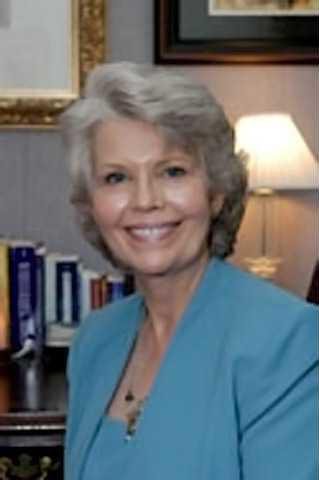Savannah psychologist Dr. Gayle Rozantine’s new book, titled “At ease, soldier! How to leave the war downrange and feel at home again,” was discussed Monday on Army Wife Talk Radio. Radio show hosts Tara Crooks and Star Henderson described Rozantine’s book as a manual to help soldiers identify and cope with emotional and mental reintegration challenges they may experience after redeployment.
Rozantine told Crooks and Henderson she and her husband, Dr. Barry Rozantine, have treated military spouses, dependents and some soldiers from Fort Stewart/Hunter Army Airfield for depression and anxiety for several years here, and that she has worked with Vietnam veterans suffering from PTSD. The Rozantines founded The Center for Health & Well-Being in Savannah in 2002. Rozantine said she and her husband consider helping military families heal mentally and emotionally a privilege.
Rozantine said 40 percent of the centers’ patients are members of the military community, and that number is increasing.
“I felt like I had to do this,” she said in a phone interview Tuesday. “We’re in the trenches here. I just admire these young people so much; they are so brave and so strong.”
The psychologist said she primarily sees military spouses and adolescent military family members while troops are deployed and has treated some of the soldiers when they return. She said most active-duty soldiers are treated by mental health providers on post.
“I’ve had (couples) in my office who have been married for five or six years, and they’ve seen each other for maybe two years,” she said.
Rozantine said problems between soldiers and their spouses tend to emerge two to three months into the reintegration period. She said soldiers are used to socializing with their “battle buddies” and are not as sensitive to what is appropriate behavior around their spouses or children. They may not understand why their macho humor is not appreciated by their wives, or they may be careless about using foul language around their children, she said. Redeployed troops also can feel overwhelmed by simple household chores, Rozantine said.
“The demands of the family may feel like too much,” she said.
Christina Anthony, family services director with Operation Homefront Georgia, agrees.
“It is hard when you are the only one — being the soldier — who is (used to) just solely taking care of (yourself) versus your family,” Anthony said. “Family members’ expectations (may be) high, expecting their soldiers to take back control of the finances or duties of the home.”
Anthony suggests soldiers be allowed small increments of time alone at home to readjust after a redeployment. She recommended soldiers not take on family responsibilities too quickly, including discipline of their children.
Anthony also suggested a relaxing day at the beach may not be the best thing for recently redeployed troops.
“It may trigger a soldier’s PTSD or (difficult) feelings about being around sand,” she said.
Rozantine said soldiers and their spouses have each gotten used to “being in control” during a deployment, the soldier on the battlefield and the spouse at home. Husbands and wives may vie for control when the soldier partner returns, she said.
Rozantine said she was inspired to write a reintegration “ranger’s manual” after attending a health-care-provider conference two years ago. She said the documentary film “Brothers at War” was shown, and she saw “the emotional toll” war had on the soldiers and their loved ones in the film.
“War is war and these experiences are traumatic,” she said.
Rozantine told Crooks and Henderson she began to research the war zone experience and “battlemind” training. She collaborated with a graphic designer on the book’s illustrations to produce an interactive workbook that would appeal to a generation of soldiers brought up on video and computer games, while also leaving room for soldiers to write down their thoughts, memories and feelings.
“What I really want to do is speak to FRG groups so people understand what the problems are and normalize what people are going through,” Rozantine said. “The wives may feel isolated. Once they realize it’s a function of what they’re going through, they’re so relieved.”
The therapist currently is working on a manual to assist other therapists who work with service members, and she plans to write a manual focusing on the needs of military spouses and then produce one for military couples.
Rozantine said she also is working with Patch Adams to organize “clown trips” to disadvantaged areas. Adams read her manual, called her and suggested they raise funds to take 20 veterans or 10 veterans and their spouses to Guatemala to visit orphanages and nursing homes and help people heal through humor. In turn, these veterans also would receive counseling for their service-related mental-health issues, Rozantine said.
For more information, visit www.soldiersathome.com.
Local therapists book aids returning soldiers


Sign up for our e-newsletters